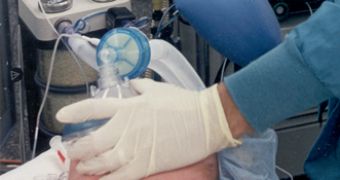According to a new scientific study, even the most common anesthetic substances can trigger arrhythmias in patients suffering from LQTS (long QT syndrome), a heart disease characterized by prolonged times the heart needs to restart a contraction cycle. Disorders in these contraction frequencies mean the heart becomes completely vulnerable to arrhythmia and sudden cardiac death (SCD). For this new test, scientists compared five of the most common substances used for anesthesia.
The scientific team, working from Rhode Island Hospital, used their experience in dealing with heart issues in order to create the first-of-its-kind animal model, meant to offer them thorough insight into how exactly each of the anesthetic substances that were tested interacted with subjects that had a predisposition to LQTS. They were led by Gideon Koren, MD, director of the Cardiovascular Research Center at Rhode Island Hospital, who is also a professor of medicine at the Warren Alpert Medical School of Brown University.
LQTS types 1 and 2 (LQT1 and LQT2) are genetic afflictions, meaning that, by genotyping patients who are to undergo surgery, doctors could know exactly if they have the predisposition to contract some form of LQTS and prescribe the anesthetics accordingly. Isoflurane, thiopental, midazolam, propofol and ketamine were used for this experiment, all five of which are very common agents, used in hospitals throughout the United States.
The results showed that most of the drugs increased the levels of arrhythmias and altered repolarization inside the hearts of LQTS 2-predisposed animal models. This discovery is very important, as such events occurring during a human heart surgery could have some catastrophic consequences for the patients and could lead to their deaths.
Koren explains, in regard to choosing anesthetic agents, "Further, we would recommend that for those individuals whose ECG appears borderline for LQTS, genotyping may be advisable in order to determine if there is a mutation of the LQT1 or LQT2 genes before selecting anesthetic agents." This could prevent anesthesiologists from unwillingly using a substance that may be hazardous to the patient's health.

 14 DAY TRIAL //
14 DAY TRIAL //